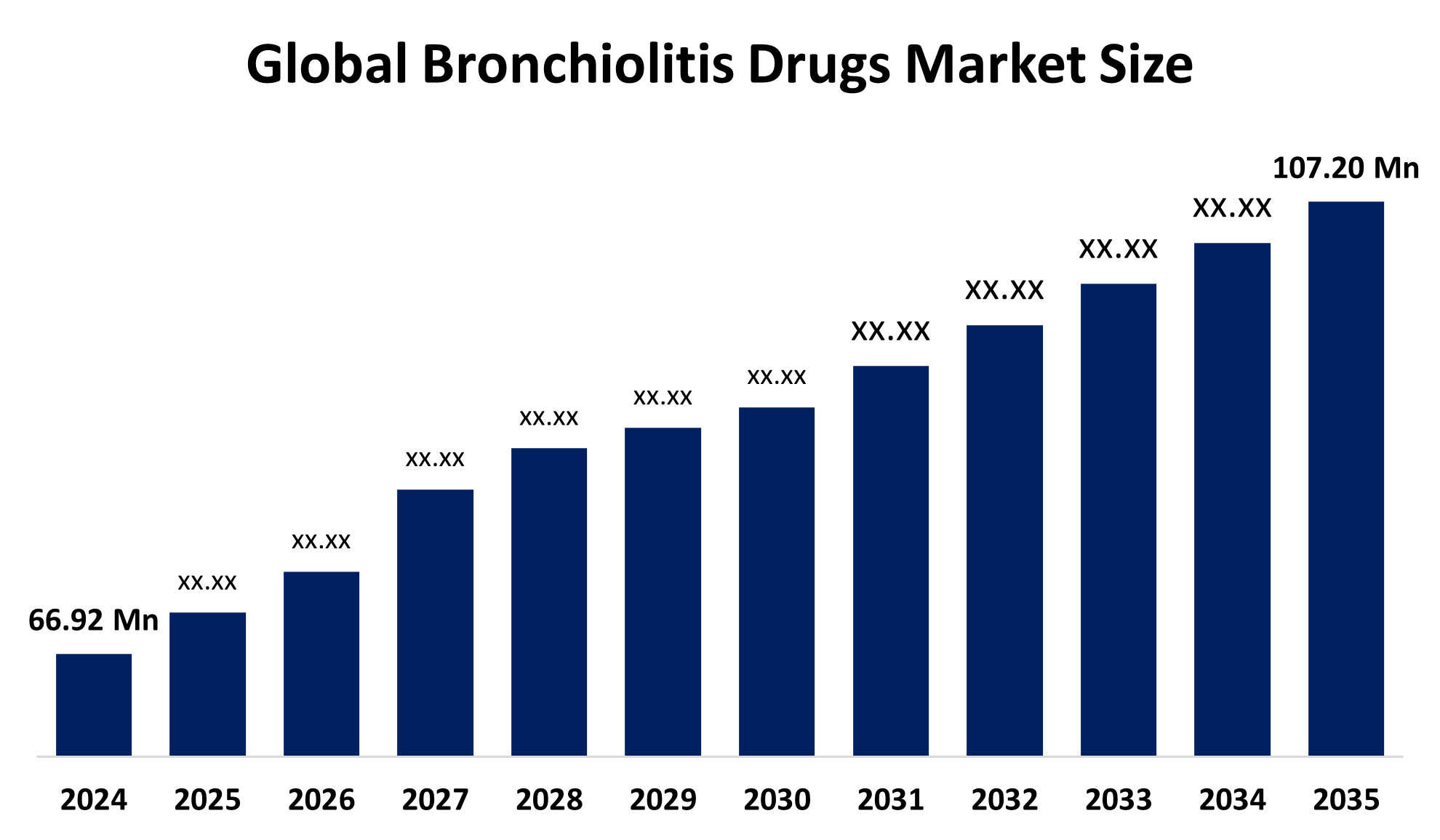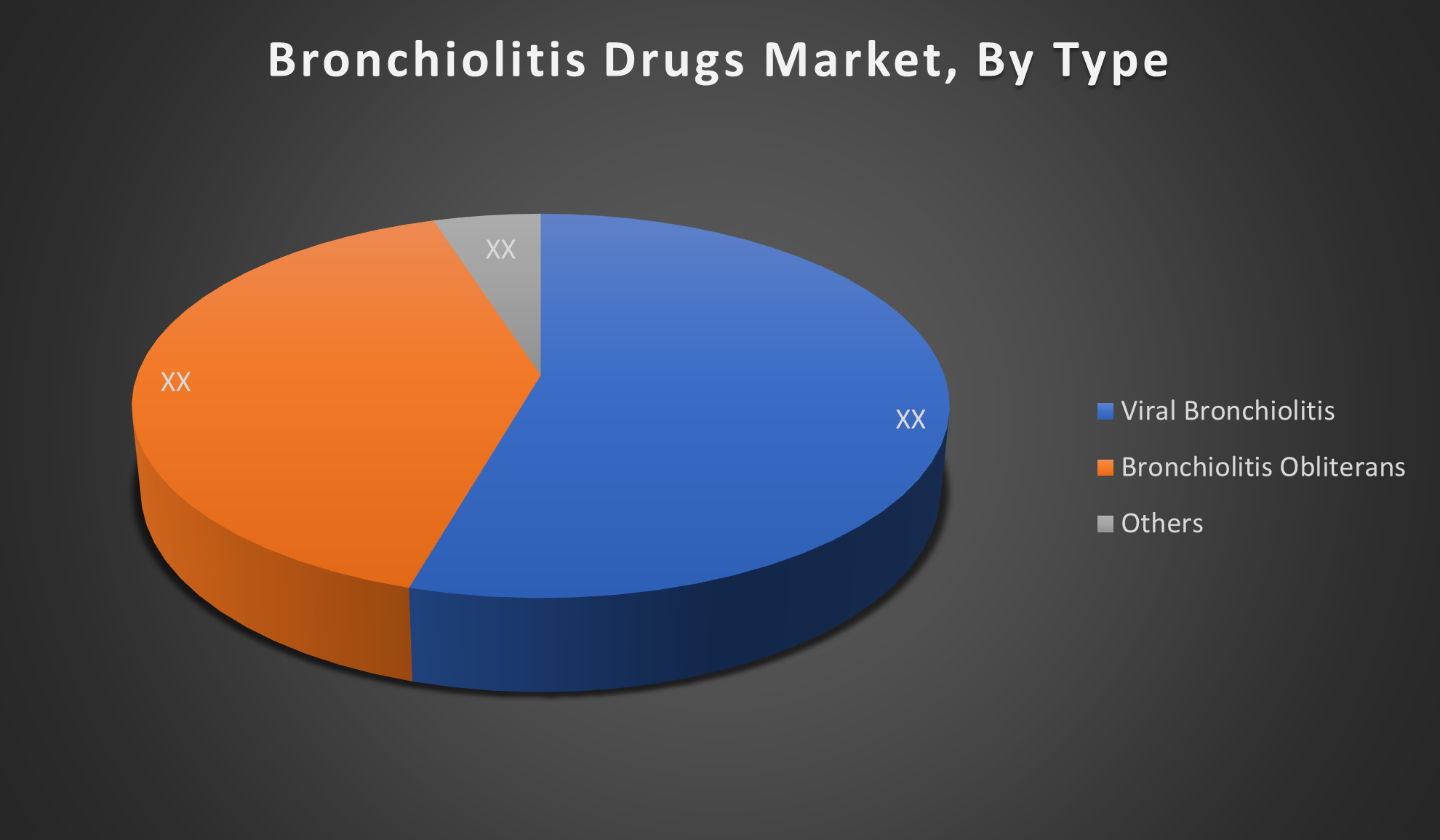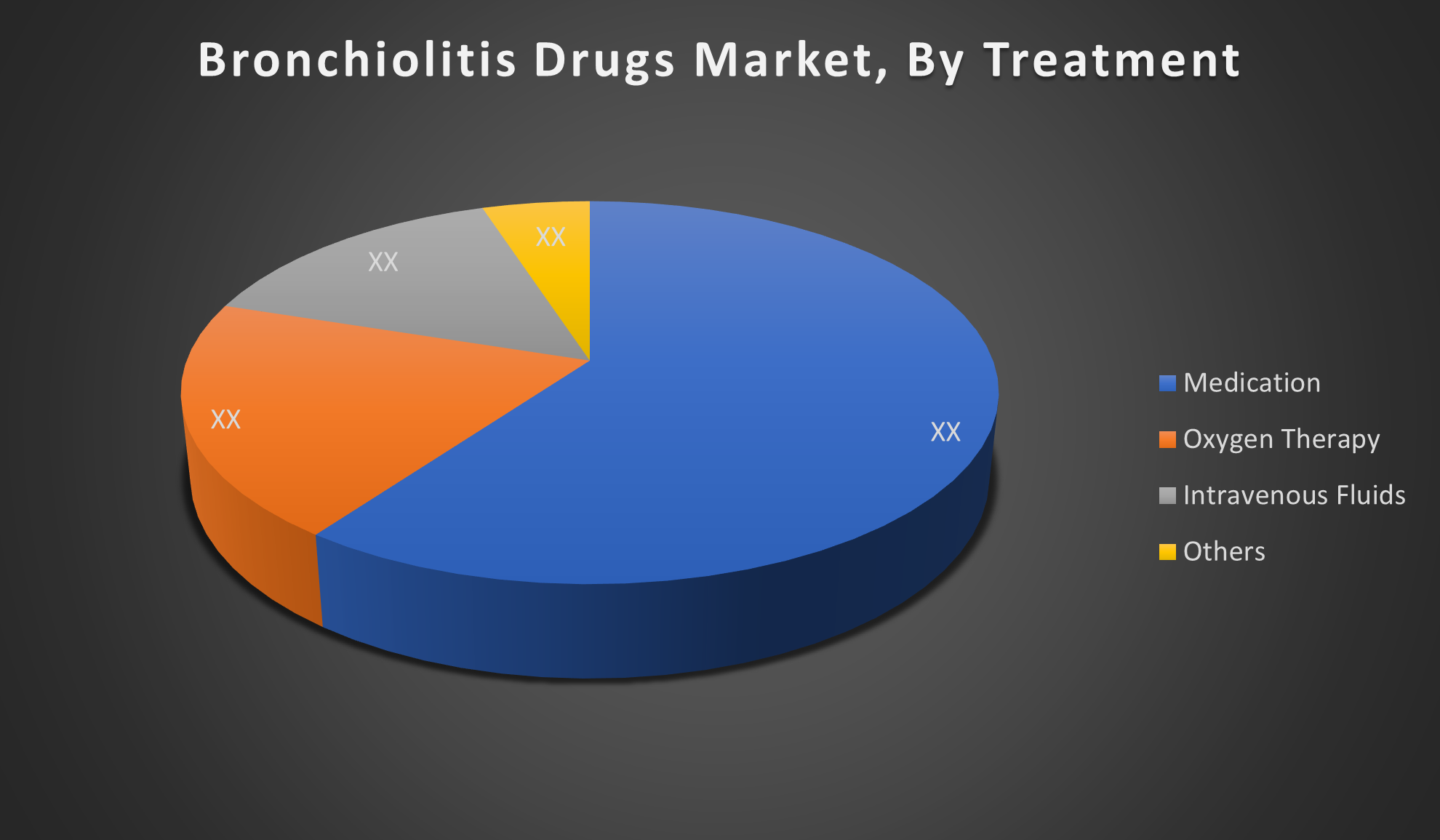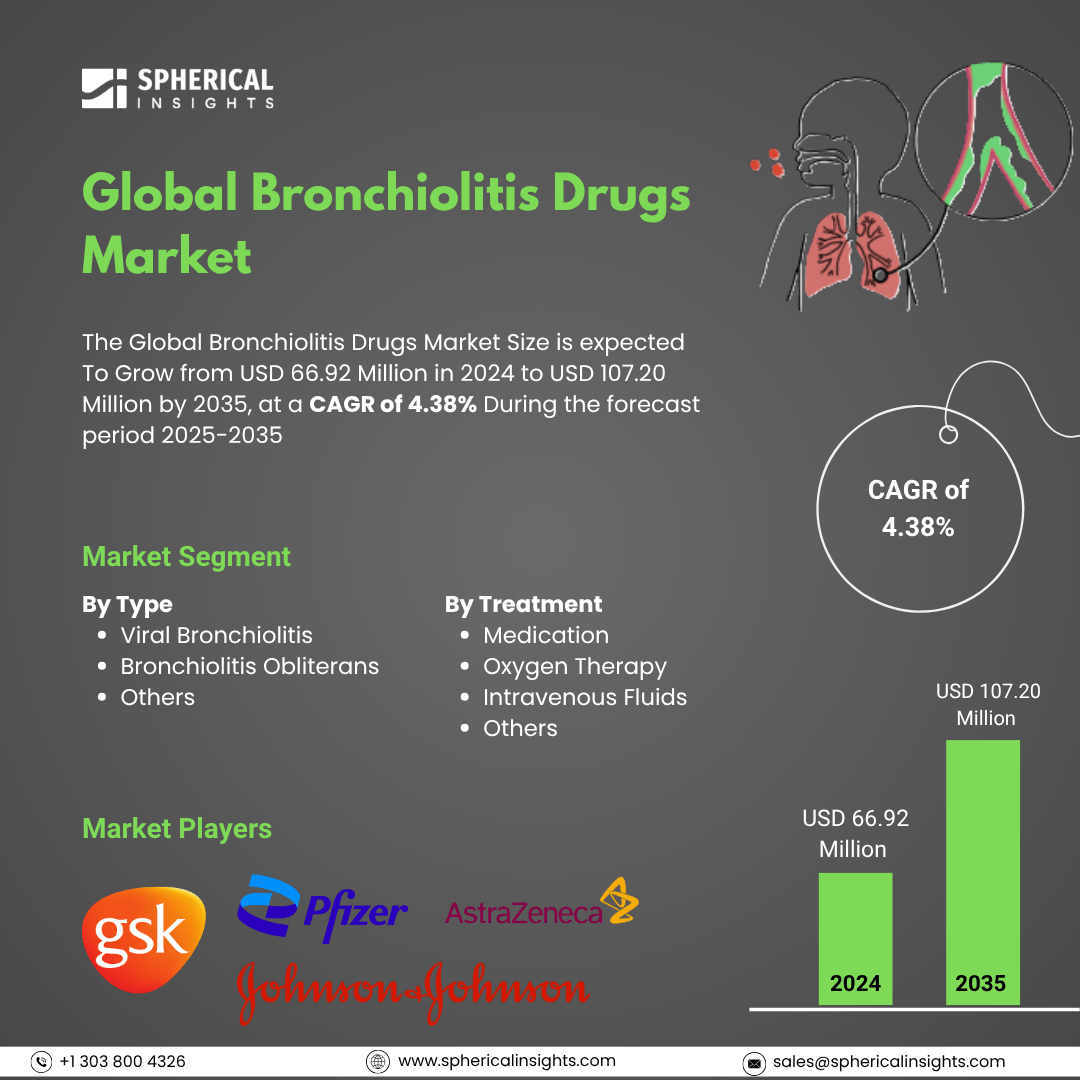- As per Spherical Insights & Consulting, The Global Bronchiolitis Drugs Market Size is expected To Grow from USD 66.92 Million in 2024 to USD 107.20 Million by 2035, at a CAGR of 4.38% during the forecast period 2025-2035, owing to the launch of new therapies in the market and the rise in the number of cases.
- The leading Bronchiolitis Drugs Market Companies such as GlaxoSmithKline, Pfizer, AstraZeneca, Johnson & Johnson, Sanofi, Novartis, Roche, Merck & Co., Bayer, Boehringer Ingelheim, Teva Pharmaceuticals, Cipla, Mylan, AbbVie, and Others.

Bronchiolitis Drugs Treatment Market: Understanding and Treatment Algorithm:
Bronchiolitis is a common viral infection that inflames and obstructs the small airways (bronchioles) in the lungs, primarily affecting infants and young children. It causes symptoms like coughing, wheezing, and difficulty breathing. Respiratory syncytial virus (RSV) is the most frequent cause of bronchiolitis.
Bronchiolitis Drugs Diagnosis:
Diagnosis of bronchiolitis is primarily clinical, based on symptoms such as cough, wheezing, and difficulty breathing in infants. Doctors may use physical exams and medical history. In some cases, chest X-rays or viral tests (like RSV testing) are performed to confirm infection and rule out other conditions.
Bronchiolitis Drug Treatment
Treatment of bronchiolitis mainly involves supportive care, including oxygen therapy, hydration, and monitoring breathing. There is no specific antiviral cure for most cases. Severe cases may require hospitalization. Medications like bronchodilators or corticosteroids are generally not recommended but may be used selectively based on the patient’s condition.
Bronchiolitis Drugs Epidemiology
The disease epidemiology covered in the report provides historical as well as forecasted epidemiology segmented by Total Diagnosed Incident Population of Bronchiolitis Drugs, Gender-specific Diagnosed Incidence of Bronchiolitis Drugs, Type-specific Diagnosed Incidence of Bronchiolitis Drugs, Age-specific Diagnosed Incidence of Bronchiolitis Drugs, Diagnosed Incident Population based on Primary Site of Bronchiolitis Drugs, and Diagnosed Incident Population based on Histologic Classification of Bronchiolitis Drugs Tumour in the global market covering North America, Europe, Asia-Pacific, Latin America, the Middle East, and Africa from 2024 to 2035.
Principal Insights
This section offers a global overview of bronchiolitis drugs epidemiology in major markets worldwide.
Country Wise- Bronchiolitis Drugs Multiforme Epidemiology
- The epidemiology segment provides Bronchiolitis Drugs prevalence data and findings across key regions worldwide, including North America, Europe (Germany, France, Italy, Spain, and the United Kingdom), Asia-Pacific (including Japan), Latin America, the Middle East, and Africa.
Bronchiolitis Drugs Recent Developments:
- In June 2025, Merck received FDA approval for Enflonsia (clesrovimab), a monoclonal antibody preventing RSV in infants, a leading cause of bronchiolitis. The approval was based on Phase 2b/3 trial data showing a significant reduction in RSV-related hospitalizations, introducing a simplified, single-dose preventive option in the market.
Bronchiolitis Drugs Marketed Drugs:
- Beyfortus: Sanofi & AstraZeneca
Beyfortus (nirsevimab) is a long-acting monoclonal antibody designed to prevent respiratory syncytial virus (RSV) infections, a primary cause of bronchiolitis in infants. It is FDA-approved for use in newborns and infants during their first RSV season to reduce hospitalization and severe disease.
Abrysvo is a maternal RSV vaccine administered during pregnancy to protect newborns from RSV infections, which often cause bronchiolitis. It is FDA-approved for use in pregnant individuals to prevent RSV-related lower respiratory tract disease in infants up to six months old.
Enflonsia (clesrovimab) is a monoclonal antibody approved to prevent RSV infections in infants, a major cause of bronchiolitis. It offers a single-dose regimen and reduces RSV-related hospitalizations, enhancing protection during infants’ first RSV season.
Bronchiolitis Drugs: Emerging Therapies
- Nirsevimab: Nirsevimab is a monoclonal antibody in advanced clinical use and ongoing trials for bronchiolitis caused by RSV. It binds to the RSV fusion protein to neutralize the virus, aiming to provide long-lasting protection in infants with a single dose during the RSV season.
- Clesrovimab: Clesrovimab is a monoclonal antibody recently approved and still under evaluation in further studies for RSV-related bronchiolitis. It offers a simplified single-dose regimen and targets the RSV F-protein, aiming to reduce hospitalization rates in infants during their first RSV season.
- Sisunatovir: Sisunatovir is an oral antiviral in Phase 2 trials for bronchiolitis. It inhibits RSV fusion with host cells, aiming to reduce viral replication and disease severity in young children. The therapy is designed to be a convenient, non-invasive treatment option.
- ALX-0171: ALX-0171 is an inhaled nanobody therapy in mid-stage clinical trials for RSV-related bronchiolitis. It is administered via nebulization and targets the RSV fusion protein, aiming to reduce viral load directly in the lungs and minimize lower respiratory complications in infants.
Bronchiolitis Drugs Market Outlook
- The bronchiolitis drugs market refers to the pharmaceutical segment focused on the prevention and treatment of bronchiolitis, an acute lower respiratory infection primarily affecting infants. It includes antivirals, monoclonal antibodies, supportive therapies, and vaccines targeting viral causes like respiratory syncytial virus (RSV).
- The market is driven by increasing RSV infection rates in infants, rising pediatric hospitalizations, advancements in monoclonal antibody therapies, and growing awareness of bronchiolitis severity. Government health programs and expanding vaccine coverage are further propelling demand for effective treatment and prevention options worldwide.
- There is strong potential for growth through the development of novel therapies, including long-acting antibodies and inhaled antivirals. Expanding access in emerging markets, increasing maternal vaccination programs, and innovation in RSV-targeted treatments present key opportunities for market players to expand global presence.
- Governments worldwide are implementing RSV immunization strategies, funding pediatric respiratory health programs, and fast-tracking approvals for preventive treatments. Initiatives like maternal vaccination and free infant immunization under national health schemes are significantly boosting early intervention and drug market penetration.
- Limited treatment options and high development costs hinder broader access and innovation in bronchiolitis therapy.
- The market is projected to grow steadily due to increasing demand for RSV-targeted preventive therapies and expanding infant immunization programs.
Bronchiolitis Drugs Market Segmentation
By Type:
- Viral Bronchiolitis
- Bronchiolitis Obliterans
- Others

Viral Bronchiolitis holds the largest share in the global bronchiolitis drugs market due to its high incidence, especially among infants and young children. Respiratory syncytial virus (RSV) is the most common cause, leading to widespread seasonal outbreaks.
By Treatment:
- Medication
- Oxygen Therapy
- Intravenous Fluids
- Others

Medication dominates the treatment segment, as bronchodilators, corticosteroids, and antiviral agents are commonly prescribed to manage bronchiolitis symptoms. This approach offers fast symptom relief, making it the frontline therapy. Frequent RSV infections and the development of new antiviral drugs further contribute to the expanding use of pharmaceutical interventions in clinical settings.
Regional Segment Analysis of the Bronchiolitis Drugs Market
North America holds the largest share of the bronchiolitis drugs market due to widespread awareness, strong healthcare infrastructure, and high diagnosis rates of respiratory illnesses, particularly among infants. The region benefits from advanced research facilities, frequent RSV outbreaks, and access to innovative drug therapies. Pediatric healthcare initiatives and supportive reimbursement frameworks further contribute to sustained demand for medications and hospital-based supportive care for bronchiolitis across this region.
Asia-Pacific is the fastest-growing region in the bronchiolitis drugs market, fueled by rising birth rates, increased awareness of pediatric respiratory illnesses, and expanding healthcare infrastructure. Improvements in early diagnosis and growing access to essential medications are accelerating treatment uptake. Government programs targeting maternal and child health and the rising burden of viral infections contribute to the region’s rapidly expanding market for bronchiolitis management, particularly in urbanizing nations.
Bronchiolitis Drugs Market Key Companies
- GlaxoSmithKline
- Pfizer
- AstraZeneca
- Johnson & Johnson
- Sanofi
- Novartis
- Roche
- Merck & Co.
- Bayer
- Boehringer Ingelheim
- Teva Pharmaceuticals
- Cipla
- Mylan
- AbbVie
- Others
Bronchiolitis Drugs Therapeutics Market Report Scope
- The Bronchiolitis Drugs therapeutics market report provides a detailed overview, covering its causes, symptoms, disease progression, and existing treatment options.
- Detailed insights into Bronchiolitis Drugs’ epidemiology and therapeutic approaches are included.
- Additionally, a comprehensive review of existing and emerging Bronchiolitis Drugs therapies is provided, including an evaluation of new treatments expected to influence the current Bronchiolitis Drugs treatment market landscape.
- The report includes a detailed review of the Bronchiolitis Drugs therapeutics market, both historical and forecasted, highlighting the global drug reach.
- The Patient-Based Bronchiolitis Drugs Market Forecasting report offers valuable insights into trends shaping the global Bronchiolitis Drugs market, helping to develop effective business strategies.
Bronchiolitis Drugs Treatment Market Report Insights
- Forecasting Market Trends Based on Patient Data and Disease Rates
- Bronchiolitis Drugs Therapeutic Approaches in Bronchiolitis Drugs
- Review Of Drugs in Development for Bronchiolitis Drugs
- Market, Growth, and Trends in Bronchiolitis Drugs
- Market Opportunities in Bronchiolitis Drugs Treatment
- Effects Of Future Therapies on Bronchiolitis Drugs Treatment.
Bronchiolitis Drugs Treatment Market Report Key Strengths
- 15 Years Bronchiolitis Drugs Market Forecast
- Global Coverage
- Bronchiolitis Drugs Epidemiology Segmentation
- Key Cross Competition
Bronchiolitis Drugs Treatment Market Report Assessment
- Present Practices in the Bronchiolitis Drugs Treatment Market
- Review of Investigational Bronchiolitis Drugs Drugs
- Attractiveness of the Bronchiolitis Drugs Drug Market
- Bronchiolitis Drugs Market Drivers
- Bronchiolitis Drugs Market Barriers
- SWOT
- Attribute Analysis
Market Segment
This study forecasts revenue at the global, regional, and country levels from 2020 to 2035. Spherical Insights has segmented the bronchiolitis drugs market based on the below-mentioned segments:
Global Bronchiolitis Drugs Market, By Type
- Viral Bronchiolitis
- Bronchiolitis Obliterans
- Others
Global Bronchiolitis Drugs Market, By Treatment
- Medication
- Oxygen Therapy
- Intravenous Fluids
- Others
Global Bronchiolitis Drugs Market, By Regional Analysis
- North America
- Europe
- Germany
- UK
- France
- Italy
- Spain
- Russia
- Rest of Europe
- Asia Pacific
- China
- Japan
- India
- South Korea
- Australia
- Rest of Asia Pacific
- South America
- Brazil
- Argentina
- Rest of South America
- Middle East & Africa
- UAE
- Saudi Arabia
- Qatar
- South Africa
- Rest of the Middle East & Africa






